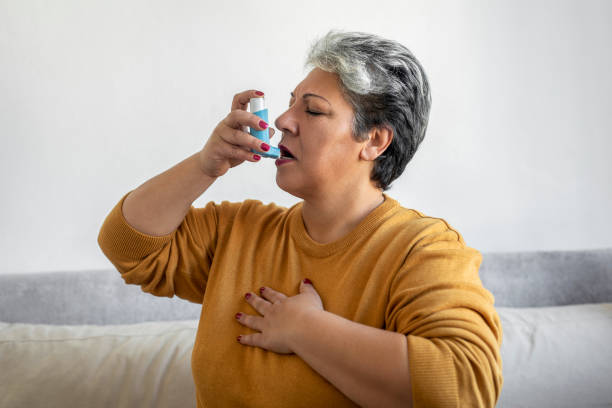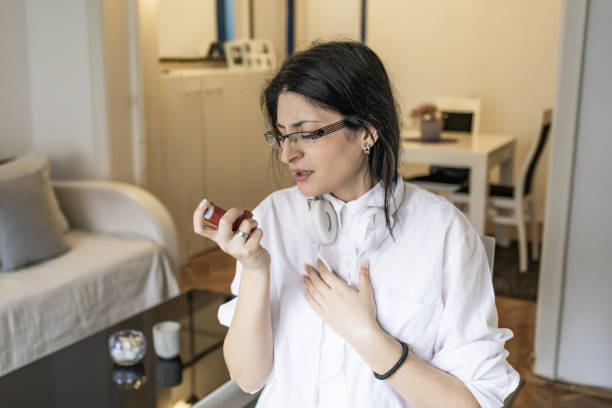Shortness of Breath and Anxiety
Shortness of Breath can be a disturbing symptom, particularly if it is associated with Anxiety. Our skilled team of psychiatrists and psychologists at UMEED is committed to helping you comprehend and manage this complex symptom.
Shortness of Breath Treatment at UMEED
We at UMEED provide thorough therapy alternatives for people experiencing dyspnea brought on by Anxiety. Our strategy consists of:
Cognitive behavioural therapy
Assists in altering unfavourable mental habits that fuel Anxiety.
Teachings on Mindfulness and Relaxation
Provides strategies for maintaining awareness and lowering stress.
Medication Management
Our psychiatrists can provide prescriptions for medication to assist in controlling anxiety symptoms when appropriate.
What Causes Shortness of Breaths Due to Anxiety?
Breathlessness is one of the most prevalent physical symptoms caused by Anxiety. When anxious, the body naturally goes into hypervigilant mode, which can lead to fast breathing or hyperventilation. The fight-or-flight reaction is the body’s way of getting you ready to react to a perceived threat.
Alongside breathlessness, feelings of restlessness often accompany anxiety. Restlessness manifests as an inability to relax, constant fidgeting, and a sense of inner turmoil. This restlessness stems from the body’s heightened state of arousal, priming itself for action in response to perceived danger. As a result, individuals may find it challenging to sit still or concentrate, further exacerbating feelings of unease and tension. Recognizing and addressing these symptoms is crucial for managing anxiety effectively and promoting a sense of calm and well-being.

How to Tell if Shortness of Breath is Due to Anxiety?
It’s critical to determine if worry or another underlying illness is the cause of your dyspnea. The following are common signs of breathlessness brought on by Anxiety:
- Breathing quickly and shallowly
- Having trouble breathing
- Chest tightness
- Feeling light-headed or vertigo
Anxiety may be the reason if these symptoms arise during stressful or panicked moments. To rule out other causes, a healthcare provider should always be consulted for persistent or inexplicable dyspnea.

What to Do When You Feel Breathless?
There are various strategies you might employ to control your worry if it causes dyspnea:
Breathe Slowly and Deeply: Taking slow, deep breaths might help you relax and manage your symptoms.
Grounding Techniques: Turn your attention away from worried thoughts and concentrate on your environment.
Progressive Muscle Relaxation: Tense and gradually release various muscle groups to lessen physical tension.
When to seek Help
Even if Anxiety is frequently the cause of dyspnea, it’s critical to get medical Help if you encounter:
- Breathing difficulties that come and go
- Breathlessness that doesn’t make sense
- Breathing problems unrelated to stress or distress
First Aid for Difficulty Breathing
If breathing becomes extremely difficult for you or someone else, you should act immediately:
Remain Calm: Breathing problems can become worse due to Anxiety.
Sit Upright: To help open the airways, sit upright.
Employ Breathing Techniques: Promote deep, slow breathing.
Seek Medical Assistance: If symptoms worsen, get Help right away.
Contact UMEED
UMEED is available to assist if you are experiencing Anxiety and dyspnea. Together, you and our team of psychiatrists and psychologists will create a customized treatment plan to enhance your overall health and successfully manage your symptoms.
Contact us right now to make an appointment and start on the path to improved health and tranquility.
